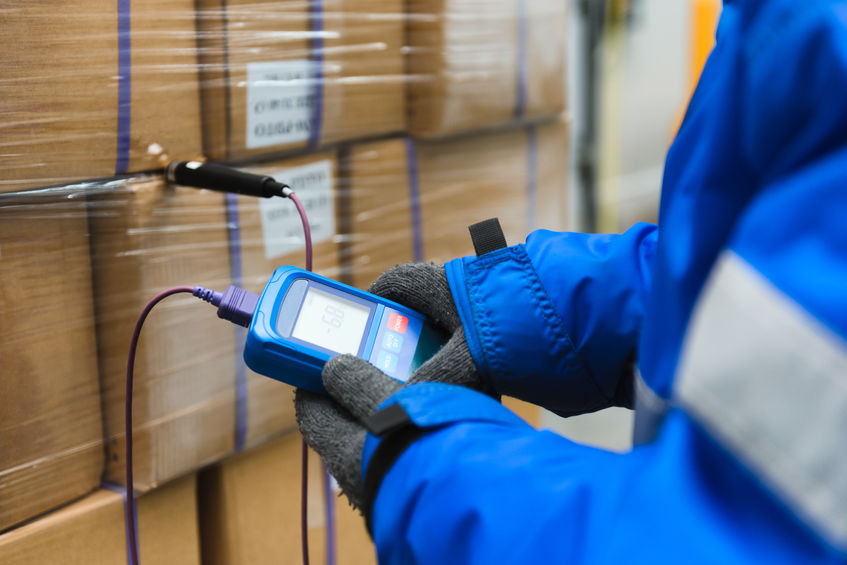Protecting food security and facilitating food trade during COVID-19
Prepared by the Chairperson of Codex Committee on Food Import and Export Inspection and Certification Systems (CCFICS) in cooperation with Australia, Canada, the European Union, New Zealand, United Kingdom and the United States of America.
The COVID-19 pandemic continues to threaten food security due to its impact on global food supply chains. Whilst the pandemic does not create new problems, it can exacerbate existing challenges as a result of changes to food supply. The importance of the global food trade and its contribution to food security puts an obligation on all countries to put in place systems to appropriately protect human, animal and plant health while facilitating trade. This is particularly important in the current environment of self-isolation and quarantine, where the reliance on safe and efficient food supply chains becomes more evident and necessary. Governments need to collaborate to keep global agriculture and food trade open and well-functioning. The Codex Alimentarius Commission has a number of guidance documents that can assist us all in achieving this outcome.

Shanghai Terminal
International risk-focused and science-based texts adopted by the Codex Alimentarius Commission set the benchmark for food safety in global food trade. They provide a framework for food safety in a transparent rules-based trading environment and reduce risks for those operating in the increasingly complex international trading system while ensuring the protection of consumers’ health. Not only must food continue to adhere to food safety standards, but measures to reduce possible transmission of the virus causing the pandemic must also be followed. The principles and guidelines developed by the Codex Committee on Food Import and Export Inspection and Certification Systems (CCFICS) can offer guidance to support the continuation of open food trade during production and distribution of food amid the pandemic. Relevant guidelines include:
Guidelines for Food Import Control Systems (CXG 47-2003)
- These guidelines provide a framework for the development and operation of an import control system to protect consumers and facilitate fair practices in food trade while ensuring unjustified technical barriers to trade are not introduced.
Guidelines for the Design, Operation, Assessment and Accreditation of Food Import and Export Inspection and Certification Systems (CXG 26-1997)
- These guidelines help governments build and maintain the necessary confidence in the inspection and certification system of an exporting country and facilitate fair trade, taking account of the expectations of consumers for an appropriate level of protection.
Principles for Food Import and Export Inspection and Certification (CXG 20-1995).
- These Principles govern robust food inspection and certification systems aimed at ensuring an optimal outcome consistent with consumer protection and facilitation of trade.
Principles and guidelines for the exchange of information between importing and exporting countries to support the trade in food (CXG 89-2016).
- These guidelines assist the competent authority of the importing and exporting countries to identify when the exchange of information may be necessary and the information that is essential for the assessment of the relevant component(s) of the national food control system. It also provides guidance to help simplify and harmonise the information and the process of the exchange of information.
Guidelines for Design, Production, Issuance and Use of Generic Official Certificates (CXG 38-2001)
- Recognising official certificates should only be required to ensure that food safety and/or fair practices in the food trade requirements are met, these guidelines advise countries on the design, production, issuance and use of them. The guidelines apply to official certificates regardless of their mode of transmission, e.g., paper or electronic.
In the context of the COVID-19 pandemic, the issue of paperless trading is increasingly important. Work on electronic certification is underway in CCFICS. It is anticipated that this new guidance could promote greater uptake of modern, paperless trade, making trade documentation more efficient and secure. Codex member countries and observers with an interest in the electronic working group should register through their national Codex Contact Point to participate in the electronic working group.

Temperature check
Shifts in supply chains can also create an opportunity for increased fraudulent activity. Food fraud is a key concern amongst regulatory authorities and for industry. CCFICS is considering its role in tackling the challenge of food fraud in the context of food safety and fair practices in the food trade.
These CCFICS guidelines will help countries to continue to meet regulatory requirements while working in challenging and exceptional environments, such as that being currently faced with reduced physical contact and remote working.
Additionally, issues around the regulation of electronic commerce (e-commerce) are also exacerbated by greater online trade as a result of COVID-19 restrictions. This issue is of concern not just to CCFICS but the wider Codex community and food control regulators.
The work of CCFICS is an example of where the Codex members have come together to create food import and export inspection and certification guidelines to protect everyone everywhere.
Read more
At the heart of the Codex mandate are the core values of collaboration, inclusiveness, consensus building and transparency. Governmental and non-governmental, public and private organizations alike play a vital role in ensuring Codex texts are of the highest quality and based on sound science.
Codex would have little authority in the field of international standard setting if it did not welcome and acknowledge the valuable contributions made by observers. Expert technical bodies, industry and consumer associations
contribute to the standard-setting process in a spirit of openness, collaboration and transparency.
Intergovernmental organizations (IGOs) and international non-governmental organizations (NGOs) can apply for observer status in Codex in order to attend and put forward their views at every stage of the standard-setting process.
 Current Codex Alimentarius Commission
Current Codex Alimentarius Commission
Protecting food security and facilitating food trade during COVID-19
Prepared by the Chairperson of Codex Committee on Food Import and Export Inspection and Certification Systems (CCFICS) in cooperation with Australia, Canada, the European Union, New Zealand, United Kingdom and the United States of America.
The COVID-19 pandemic continues to threaten food security due to its impact on global food supply chains. Whilst the pandemic does not create new problems, it can exacerbate existing challenges as a result of changes to food supply. The importance of the global food trade and its contribution to food security puts an obligation on all countries to put in place systems to appropriately protect human, animal and plant health while facilitating trade. This is particularly important in the current environment of self-isolation and quarantine, where the reliance on safe and efficient food supply chains becomes more evident and necessary. Governments need to collaborate to keep global agriculture and food trade open and well-functioning. The Codex Alimentarius Commission has a number of guidance documents that can assist us all in achieving this outcome.

Shanghai Terminal
International risk-focused and science-based texts adopted by the Codex Alimentarius Commission set the benchmark for food safety in global food trade. They provide a framework for food safety in a transparent rules-based trading environment and reduce risks for those operating in the increasingly complex international trading system while ensuring the protection of consumers’ health. Not only must food continue to adhere to food safety standards, but measures to reduce possible transmission of the virus causing the pandemic must also be followed. The principles and guidelines developed by the Codex Committee on Food Import and Export Inspection and Certification Systems (CCFICS) can offer guidance to support the continuation of open food trade during production and distribution of food amid the pandemic. Relevant guidelines include:
Guidelines for Food Import Control Systems (CXG 47-2003)
- These guidelines provide a framework for the development and operation of an import control system to protect consumers and facilitate fair practices in food trade while ensuring unjustified technical barriers to trade are not introduced.
Guidelines for the Design, Operation, Assessment and Accreditation of Food Import and Export Inspection and Certification Systems (CXG 26-1997)
- These guidelines help governments build and maintain the necessary confidence in the inspection and certification system of an exporting country and facilitate fair trade, taking account of the expectations of consumers for an appropriate level of protection.
Principles for Food Import and Export Inspection and Certification (CXG 20-1995).
- These Principles govern robust food inspection and certification systems aimed at ensuring an optimal outcome consistent with consumer protection and facilitation of trade.
Principles and guidelines for the exchange of information between importing and exporting countries to support the trade in food (CXG 89-2016).
- These guidelines assist the competent authority of the importing and exporting countries to identify when the exchange of information may be necessary and the information that is essential for the assessment of the relevant component(s) of the national food control system. It also provides guidance to help simplify and harmonise the information and the process of the exchange of information.
Guidelines for Design, Production, Issuance and Use of Generic Official Certificates (CXG 38-2001)
- Recognising official certificates should only be required to ensure that food safety and/or fair practices in the food trade requirements are met, these guidelines advise countries on the design, production, issuance and use of them. The guidelines apply to official certificates regardless of their mode of transmission, e.g., paper or electronic.
In the context of the COVID-19 pandemic, the issue of paperless trading is increasingly important. Work on electronic certification is underway in CCFICS. It is anticipated that this new guidance could promote greater uptake of modern, paperless trade, making trade documentation more efficient and secure. Codex member countries and observers with an interest in the electronic working group should register through their national Codex Contact Point to participate in the electronic working group.

Temperature check
Shifts in supply chains can also create an opportunity for increased fraudulent activity. Food fraud is a key concern amongst regulatory authorities and for industry. CCFICS is considering its role in tackling the challenge of food fraud in the context of food safety and fair practices in the food trade.
These CCFICS guidelines will help countries to continue to meet regulatory requirements while working in challenging and exceptional environments, such as that being currently faced with reduced physical contact and remote working.
Additionally, issues around the regulation of electronic commerce (e-commerce) are also exacerbated by greater online trade as a result of COVID-19 restrictions. This issue is of concern not just to CCFICS but the wider Codex community and food control regulators.
The work of CCFICS is an example of where the Codex members have come together to create food import and export inspection and certification guidelines to protect everyone everywhere.
Read more
 Codex and Observer
Codex and Observer
around the world since ancient times.
We might not always know where it comes from,
but we expect it to be available, safe and of good quality.









Leave a comment